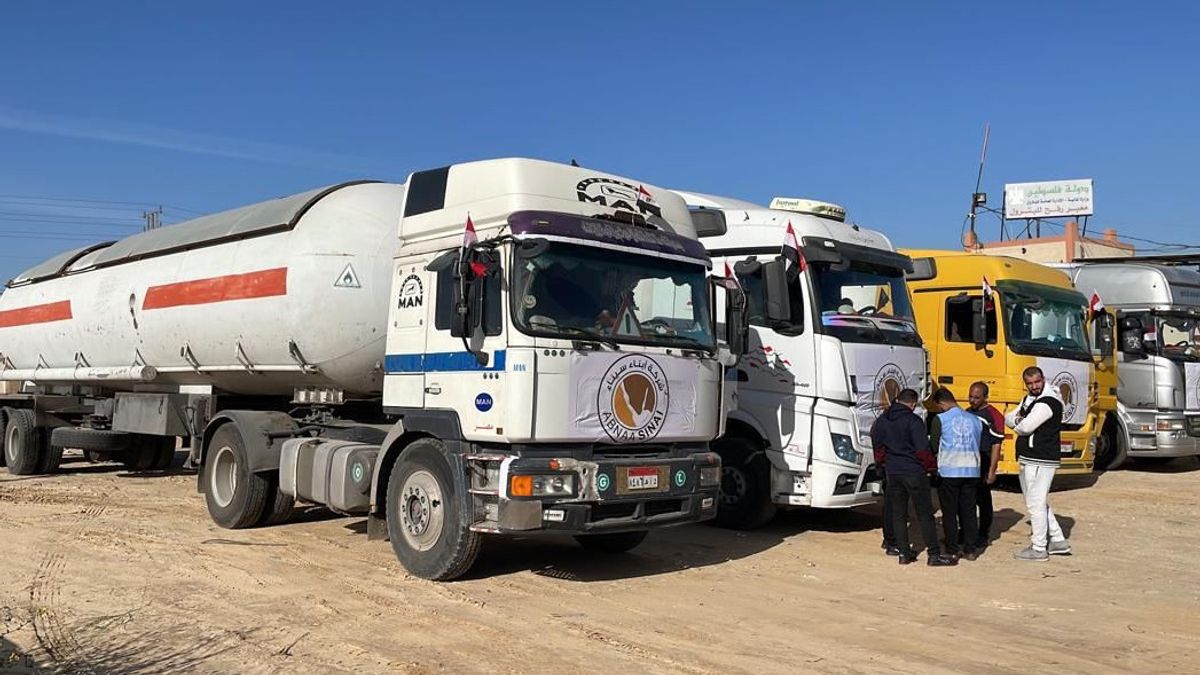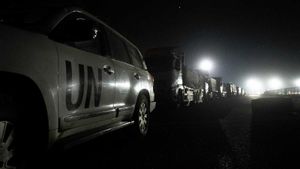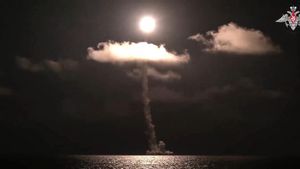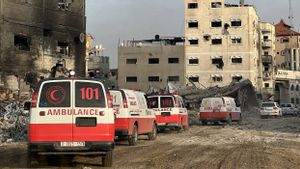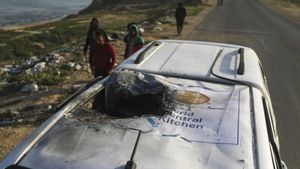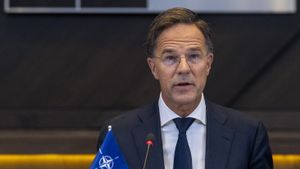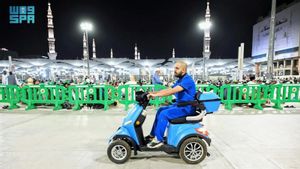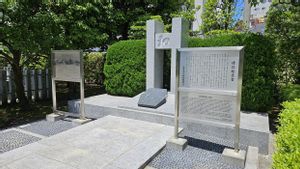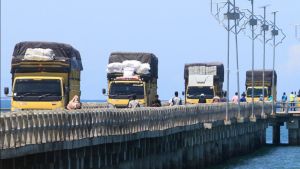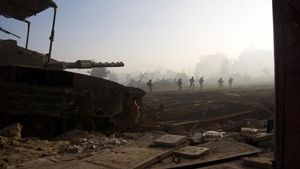JAKARTA - Israel and Egypt blame each other as international aid agencies urged deescalation in Rafah, southern Gaza to prevent the risk of worsening the humanitarian situation, as well as reopening border crossings.
Officials from UNICEF, Doctors Without Borders and the Palestinian Red Crescent Society have all voiced concerns that hostilities will increase at the same time as delays in the entry of aid into the enclave.
The Palestinian Red Crescent Society (PRCS) has called for border crossings to be opened to allow more assistance to enter.
"The ongoing closure of crossings by Israeli occupation forces, particularly Rafah's important crossings, prevents the entry of humanitarian aid, including food, medicine, and fuel, poses an imminent threat of humanitarian and health disasters," PRCS said in a statement. a statement, quoted from CNN May 15.
Similar concern was conveyed by UNICEF Regional Director for the Middle East and North Africa Adele Khodr.
"Publics who are exhausted, malnourished and facing various traumatic events, are now facing an increase in deaths, injuries and evacuations in the midst of their settlement ruins," said Khodr.
"The humanitarian operation, which is the only rescue route for the entire population in the Gaza Strip, is threatened", he continued.
"Large hospitals in the northern region that are in the evacuation zone, including Kamal Adwan, Al Awda and Indonesian hospitals, are in a shootout, which seriously disrupts the delivery of important medical supplies and endangers many lives. Those who are at risk of starvation are now unable to receive any assistance," added Khodr.
Meanwhile, Doctors Without Borders (MSF) said they had to stop providing treatment at the Indonesian Field Hospital in Rafah due to Israeli attacks.
"We have to leave 12 different health facilities and have experienced 26 violent incidents, including airstrikes that damaged hospitals, tank shootings at agreed shelters, ground attacks on medical centers, and convoys being fired upon", said chief emergency operations MSF Michel-Olivier.
Meanwhile, Israel and Egypt blame each other for closing Rafah crossings and the humanitarian crisis in Gaza.
The Israeli Foreign Minister, Israel Katz, called for Egypt to reopen Rafah's border crossings has sparked heated debates with its Egyptian counterparts.
Foreign Minister Katz said on Twitter he had spoken with British Foreign Minister David Cameron and German Foreign Minister Alma Baerbock "about the need to persuade Egypt to reopen Rafah crossings to allow continued international humanitarian aid deliveries to Gaza."
However, the comments were criticized by Egyptian Foreign Minister Sameh Shoukry, who branded the comments as an attempt to shift errors over the Gaza humanitarian crisis to Egypt.
SEE ALSO:
Foreign Minister Shoukry accused Israel of being the cause of the crisis through its military action and its control over crossings on the Palestinian side. He asked Israel to fulfill its obligations as an occupied country and allow aid to enter Gaza via its controlled land port.
"Israel is fully responsible for the humanitarian disaster currently being faced by Palestinians in the Gaza Strip," said Foreign Minister Shoukry.
But Foreign Minister Katz reiterated Israel's stance that Hamas would not be allowed to control the Rafah crossing, saying "this is a need for security that we will not compromise."
The English, Chinese, Japanese, Arabic, and French versions are automatically generated by the AI. So there may still be inaccuracies in translating, please always see Indonesian as our main language. (system supported by DigitalSiber.id)
